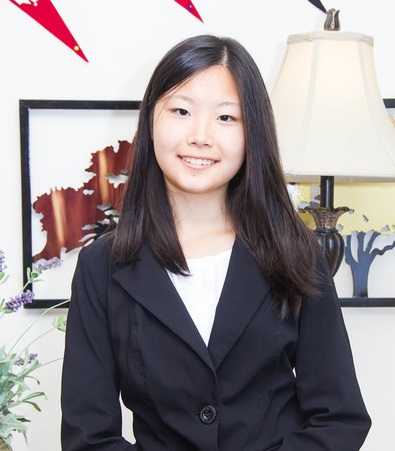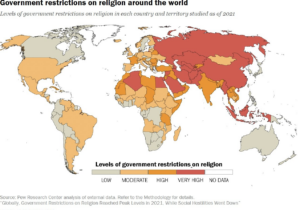Militant groups like the Islamic State have long targeted Christian holy sites in the Middle East, and Christians in the region have often fled their hometowns due to persecution and violence. Sara Savva, deputy director of GOPA-DERD (the Greek Orthodox Patriarchate of Antioch’s Department of Ecumenical Relations and Development), called the destruction of sacred Christian sites in the region “a loss for every single Christian around the world” and a “big loss for mankind.”
The Hudson Institute’s Working Group on Christians and Religious Pluralism in the Middle East hosted Savva—along with Mazen Karam, CEO of the Bethlehem Development Foundation, and Stephen Rasche, vice-chancellor of the Catholic University in Erbil, the capital city of Iraqi Kurdistan—for a panel discussion on July 15 titled, “Middle Eastern Christian Sites: Key to Religious Pluralism.”
The panelists stressed the importance of restoring and protecting sacred sites, which act not only as historical landmarks, but also as the spiritual hearts of Christian communities. Savva noted that 90 percent of the beneficiaries of GOPA-DERD’s work in Syria—preserving sacred sites; restoring houses, schools, and health centers; increasing access to fresh water; and providing psychosocial support—are Muslims because most Christians have left.
Rasche, who is working with various groups to restore 25 sacred sites in the Nineveh Plains and Mosul, pointed to the “exodus” of Christians from the region as a decisive reason to urgently undertake restoration work.
“It demonstrates to the displaced communities that the church and the Christian community writ large haven’t given up on the rights of the Christians in those places,” he said. When Christians simply allow sacred sites to be destroyed, that sends “a very clear signal that the Christians have given up completely [a claim] to any rights—to any future rights—that they might have” in those places.
Rasche cautioned, “If you wait too long, these communities, these areas will be taken over by other people, and your ability to go back in once that’s happened is really minimal in a country that is as unstable as things are in Iraq or in Syria.”
Karam, whose organization has done extensive work on restoring the Church of Nativity in Bethlehem—the first major restoration project in 500 years—agreed with Rasche’s call for urgent action. “If we waited another 500 years, there would be no Church of Nativity,” he said.
The Bethlehem Development Foundation began work on the church in 2013; in July 2019, UNESCO removed the church from its list of endangered sites. At this point, 90 percent of the restoration work has been completed.
Churches and other sacred sites also act as a solid foundation for rebuilding communities. Many secular aid agencies have drawn up rebuilding plans for Christian towns that were destroyed by ISIS in 2014. However, Rasche explained, they do not understand that “the church was the center of the community—of community life, of community cohesiveness.”
“The rebuilding of the sacred sites is just intrinsic to any rebuilding plan that you can have for the stability of the community,” he stressed. As more Christian refugees return to their homeland, the presence of these sacred sites will be a source of strength to restored communities and Christians around the world.
Savva emphasized the unity of the church in experiencing persecution and restoration. “What happens to Christians in the East is not just in the East. It will one day affect Christians in the West because we are all united,” she said. “Whether we know that or not, we are all united because the Church of Antioch… is also referred to as the mother church, as the church of martyrs, and this is where it all began.”
Savva questioned why the preservation of sacred sites does not receive as much attention when “we all travel to different countries and visit museums.”
“It breaks my heart to see that ancient sites… where saints actually passed or where miracles happened… or Jesus once walked… it breaks my heart to see that this is not on the top of the list of a lot of decision-makers and people around the world, and it should be because this is also history. The Bible is history regardless if you are a Christian or if you are someone from another religious affiliation, or if you don’t believe in the existence of God at all. But it’s something we respect and we value because it’s history, it’s identity, it’s culture.”
Indeed, a lot of support for the restoration of Christian sites comes from the Muslim community in the region. “It’s part of their culture too,” Karam said. The Bethlehem Development Foundation received two donations from the Arab Fund for Economic and Social Development while the US government rejected all their funding requests. Karam called on majority-Christian countries to do more to support the “sustainability of Christianity in the region.” He did note, however, that most individual donors are from the US.
Lack of funding is always a limiting factor in this work, as is the regional instability. Rasche was often asked why he bothers to do all this work in a country like Iraq where the security situation is so unstable. He said, “The fact of the matter is, amidst all of this chaos, you still have a country of people who are living and trying to move forward, so you do the best within the situation that you can. Sometimes the work has to stop; sometimes it’s prohibitive. But you have to take the long view and keep moving.”
The long view to Savva means looking to future generations. “I would not want to reach a part of the future with our children and grandchildren and just explain to them what the Bible is or what this holy site used to be, but I would rather have them buy a plane ticket and go there for themselves and see it,” she said.
Savva appealed to “all the Christians around the world, regardless of which denomination or church they belong to” to help preserve Christian sacred sites in the Middle East because “this is where it all began.”






